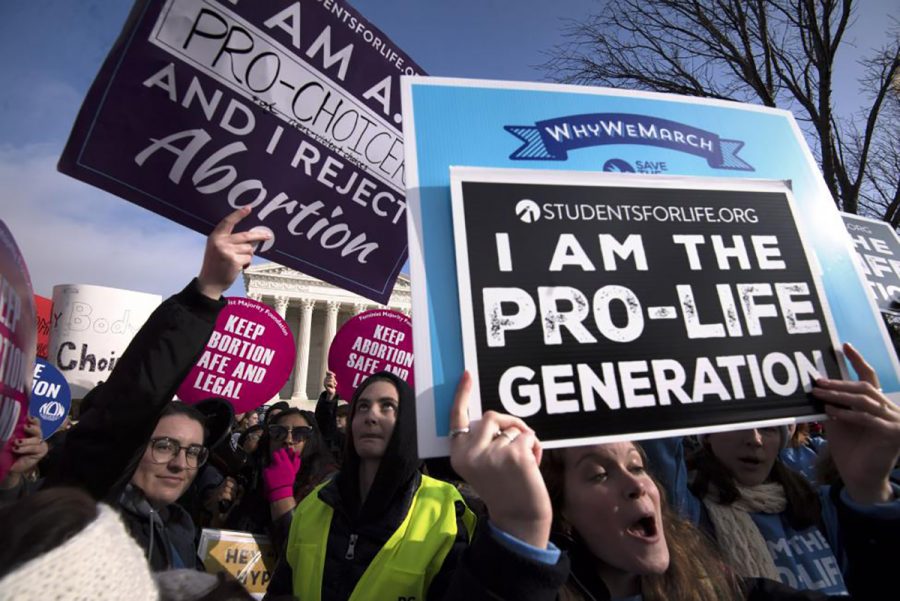Alabama abortion ban blocked
Federal judge blocks Alabama’s abortion ban the week before its scheduled effect
Photo by Submitted
Protesters rally in the Alabama capital protesting the Alabama Abortion Ban.
I’m sure many of you have heard conversations for or against abortions, and you probably know where you stand, as well. If you’re against abortion bans, this is good news for you.
On Oct. 29, U.S. District Court Judge Myron Thompson blocked Alabama’s abortion ban law, writing “Alabama’s abortion ban contravenes clear Supreme Court precedent. It violates the right of an individual to privacy, to make ‘choices central to personal dignity and autonomy,” according to USA Today,
Thompson’s reasoning for blocking the bill was because she believes it violates our Constitutional rights, which I agree with.
The abortion ban law was signed by Alabama Gov. Kay Ivey earlier this year on May 15.
The ban, which was scheduled to take effect on Nov. 15, was set to outlaw almost all abortion procedures with no exceptions for rape or incest. Performing the procedure would be considered a Class A Felony, and the individuals who did perform the act could face up to 99 years in prison, according to BBC News,
If that seems outrageous to you, I can understand as it seems outrageous to me as well. It makes me question if the law would really be enforced.
It seems very unlikely that they would send a doctor to prison for 99 years. Even the supporters of the bill expected it to be blocked, according to BBC News, and that’s exactly what happened.
According to AL.com, both the American Civil Liberties Union of Alabama and Planned Parenthood sued the state saying the bill is unconstitutional.
“As expected, the court has blocked the law and it will not go into effect. Abortion remains legal in Alabama,” said Randall Marshall, executive director of ACLU of Alabama, as well as one of the plaintiffs in the case. “The state’s repeated attempts to push abortion out of reach by enacting unconstitutional laws restricting abortions has already cost taxpayers nearly $2.5 million. This ill-advised law will cost taxpayers more money.”
Right after Ivey signed the law, she issued a statement saying “No matter one’s personal view on abortion, we can all recognize that, at least for the short term, this bill may be unenforceable. As citizens of this great country, we must always respect the authority of the U.S. Supreme Court even when we disagree with their decisions,” according to USA Today.
Gov. Ivey draws the line only when the U.S. Supreme Court rules that abortion is a right and is legal even though she wouldn’t draw that line when it came to rape, incest or simply a woman’s choice.
Alabama, North Dakota, Iowa, Mississippi, Kentucky, Ohio and Georgia have all considered challenging the 1973 U.S. Supreme Court’s Roe v. Wade decision: the decision that allowed women to govern their own reproductive system, according to MSN.
I think Ivey needs to repeat her statement louder for the people in the back.
“As citizens of this great country, we must always respect the authority of the U.S. Supreme Court even when we disagree with their decisions,” Ivey said according to USA Today.
Naturally, that should apply to the Roe v. Wade decision as well.
Armagost can be reached at armagorl8545@uwec.edu

Robin Armagost is a first-year English and Journalism student. She loves to play Pokémon and Super Smash Bros.

